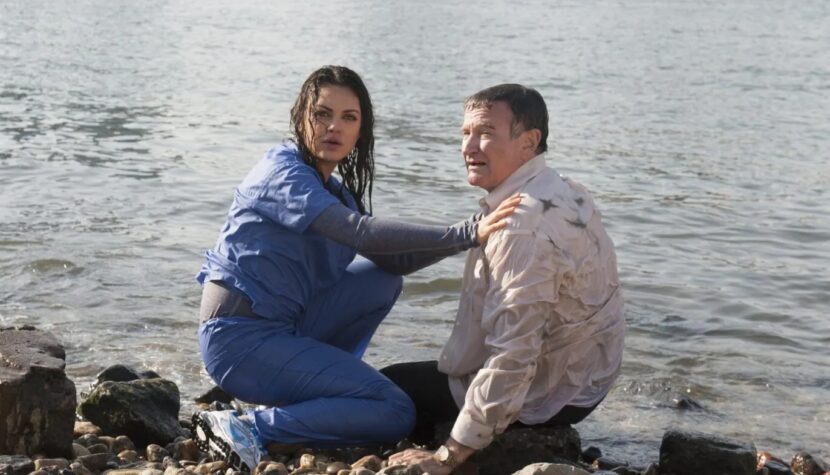THE ANGRIEST MAN IN BROOKLYN. Robin Williams in one of his last roles

“It’s unclear what to feel and think after watching The Angriest Man in Brooklyn. Did this movie familiarize us with the idea of sudden death, whether our own or that of someone close? Did it, even for a moment, convince us to appreciate life and love our dear ones? Did it amuse us? Move us? Not really. Although we understand the director’s intentions and the meaning of the whole story, there is a lack of that cinematic magic and power that make us believe in what we are watching. While it is evident that it was meant to be lifelike, thanks to the blend of comedy and tragedy, the result is rather poor – neither the characters nor their story are convincing.
The sudden news that in 90 minutes he will die motivates Henry (Robin Williams) to spend his last moments with loved ones, rectify life’s mistakes, and say the last important words to those who deserve them. In a frantic pace, running and driving around Brooklyn, the main character tries to sort out his affairs. Of course, it won’t be easy, as he encounters numerous obstacles. Henry is the center of attention, but “attached” to him, and essentially “coming” into the foreground, is his doctor (Mila Kunis), a novice and embittered by the struggles of daily life, Dr. Gill. Thus, we follow the actions of the desperate Henry, but along with him unfolds the story of Dr. Gill, who initiated the avalanche of Henry’s final actions.

The humor of the film is based on the fact that the characters, especially Henry, shout, curse, and insult others – because living differently is impossible; the world in their eyes has become futile, everything is irritating, people disappoint, and everyday life is depressing. The beginning of the film is significant when Henry, annoyed by the traffic jam he’s stuck in, begins listing what annoys him. And essentially, he lists everything that would come to our minds. His way of surviving in such a reality is to vent his anger on the surroundings.
When no one is shouting at anyone, weak scenes from a series of memories or pleasant conversations appear – embarrassingly sentimental and banal. Obvious things happen, and the characters state the obvious. Clichéd scenes abound (a patient escaping from the hospital with a bare bottom, a marital argument in front of a stranger who wants to leave but, of course, cannot), and the fact that Henry looks the same as he did years ago and the special effects served during the bridge jump scene are glaringly artificial. Forced laughter arises from scenes of insulting a foreigner or a stuttering salesman.

Although everyone gives their best performance, Williams as the choleric monopolizes our attention, and Kunis, who tries to “catch up” with her fury, it is difficult to consider their roles as the pinnacle of acting, largely due to the weak script. All the emotional involvement, the drama they put into their characters, loses its meaningfulness in contrast to what the unevenly told, sometimes absurd, and unexciting story brings. There’s hardly anything worth mentioning about the other supporting roles.
It is also impossible not to associate Henry’s story with the death of the actor playing his role. It’s truly challenging to avoid the easily suggested autobiographical references brought by one of Robin Williams’ last films.”

